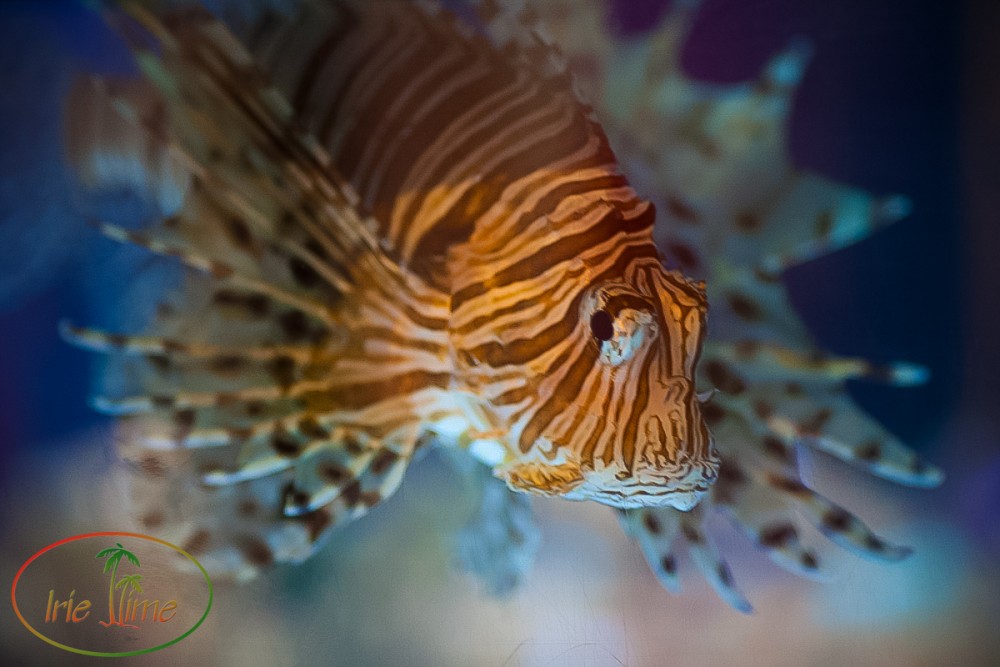The Roar of the Lionfish
When a species is introduced into a place unknown to it before, the consequences can be devastating. The coastal United States and Caribbean nations are currently threatened with the invasion of a species of fish which has no predators in the region, other than man, and which may be responsible for wiping out the beautiful fish of the Caribbean region which delight snorkelers and divers who visit the area.
The lionfish, (family Scorpaenidae, genus Pterois), is native to the Pacific Ocean waters. Although it is difficult to pinpoint their origins in the Caribbean, many attribute it in large part to the the breach of an aquarium off Biscayne Bay in Florida during Hurricane Andrew in 1992, which released six red lionfish (species Pterois volitans) into the sea. They breed rapidly, and just a few fish twenty years ago have grown to an enormous population, denser than in their native territory.
Lionfish prey on many of the beautiful fish which are the backbone of Caribbean tourism, small coral reef fish including the fairy basslet, bridled cardinalfish, white grunt, bicolor damselfish, striped parrotfish, as well as tasty fish and crustaceans including the Nassau grouper, yellow tail snapper, banded coral shrimp, and even juvenile spiny lobster. They also compete with other local species for food. Local fish do not recognize them as prey, and thus, the only real predator of the lionfish in the region is man.
Lionfish pack some nasty defenses. Those beautiful spines are venomous, and can cause a vicious sting or reaction in humans, necessitating medical treatment or hospitalization. Approach with care!
Luckily, the threat to our reefs has been recognized and there is an effort underway to control the expansion of the lionfish population. Organizations such as REEF are dedicated to research, education, and management of their populations. More and more lionfish recipes and entrees are popping up. Lionfish derbies are being held, contests to award those who spear the biggest and largest quantities. For more information on lionfish events, check out REEF’s Event Page here, and happy hunting!
We have seen lionfish in several recent trips, as far south as Anguilla.
By the way, the lionfish pictured above is in a tank at the Milwaukee County Zoo, Milwaukee, Wisconsin USA, and even if a tornado hit, there is little chance of it ever reaching navigable waters.
